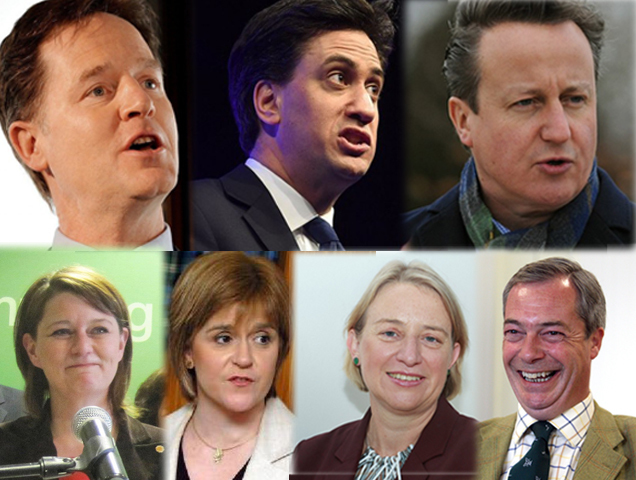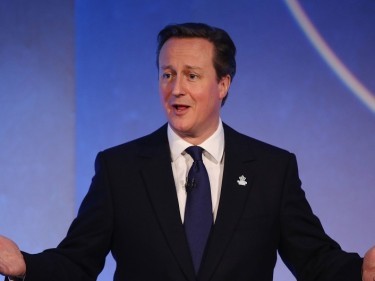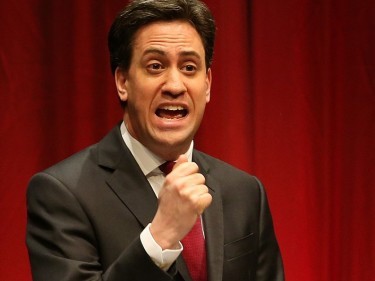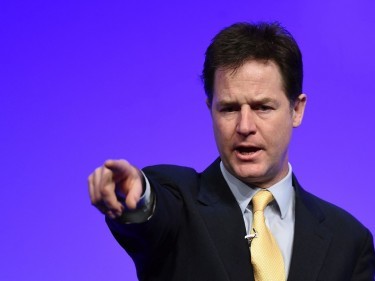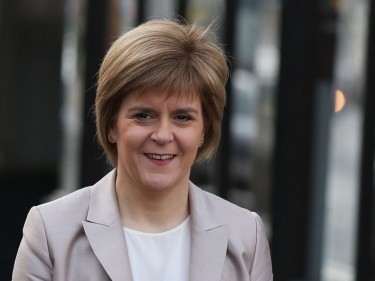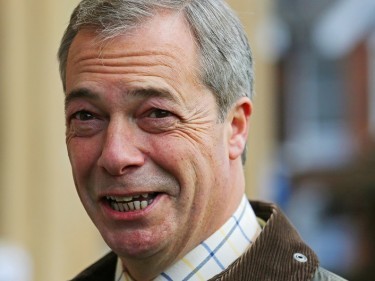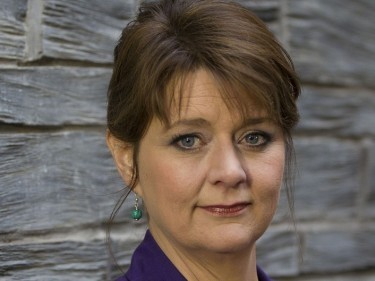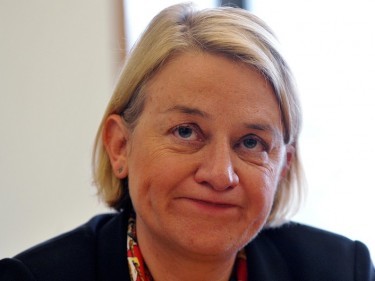British electoral history will be made tonight as the leaders of seven of the UK’s major parties go head-to-head in a live TV debate in the run up to the general election.
It is the first time that so many candidates, some of whom don’t hold a seat in the House of Commons, will face off against one another and only the second time that TV debates between leaders in a UK election have happened at all.
Editor’s note: We’re sorry, but due to technical difficulties we’ve been unable to deliver live updates this evening. However, we will be providing full coverage with articles, polls, pictures and analysis over the course of the evening – stay tuned!
The two-hour battle on STV will be the only broadcast debate featuring David Cameron, after the prime minister refused to sign-up to a proposed series of such events.
Check out our General Election poll held in the run-up to tonight’s debate
SNP First Minister Nicola Sturgeon will also be taking part, alongside Labour’s Ed Miliband, Liberal Democrat leader Nick Clegg, Ukip’s Nigel Farage, Green leader Natalie Bennett and Plaid Cymru’s Leanne Wood.
Leaders will not see the questions in advance and an “experienced editorial panel” will select them.
With just 35 days to go before voters cast their ballots this could be where many will make their decision.
So here is our rundown on what you can expect from the night ahead:
David Cameron, Conservative Party
Bio: Came to power in 2010 as head of a coalition government with the Liberal Democrats. Holds the safe Tory seat of Witney. Father, Ian, was born near Huntly, Aberdeenshire.
Age: 48
Values: “Compassionate conservative”- has repeatedly stressed the need to cut state spending to reduce the budget deficit.
Most likely to say: “We’ve sorted out the mess of the last government.”
Least likely to say: “More money for the unemployed!”
Nickname: Dave the Chameleon
Ed Miliband, Labour Party
Bio: Son of European Jewish parents who both escaped the holocaust. Beat his brother David to become party leader. Represents Doncaster North.
Age: 45
Values: Advocates less austerity to be balanced by tax rises on the rich.
Most likely to say: “I have what it takes to be Prime Minister.”
Least likely to say: “We think we’re going to do really well in Scotland this time.”
Nickname: Red Ed, Wallace
Nick Clegg, Liberal Democrats
Bio: Deputy Prime Minister after joining coalition with the Tories in 2010. Ex-Financial Times journalist. Represents at-risk seat of Sheffield Hallam.
Age: 48
Values: “A liberal by temperament, by instinct and by upbringing”- believes in defending civil liberties and protecting the environment.
Most likely to say: “We stand by our record in Government”
Least likely to say: “We’re happy we raised tuition fees.”
Nickname: Calamity Clegg
Nicola Sturgeon, Scottish National Party
Bio: Came to lead the party after Alex Salmond resigned following defeat in the 2014 independence referendum. Not seeking election to the House of Commons.
Age: 44
Values: More powers for the Scottish parliament and more representation for the SNP in Westminster.
Most likely to say: “We can help shape a progressive future for the whole of the UK.”
Least likely to say: “We want to eventually break up the UK.”
Nickname: Nippy Sweetie
Nigel Farage, United Kingdom Independence Party
Bio: Beer-drinking, cigarette-smoking leader of UKIP. Former city trader. Left the Tories in protest in 1992 at Eu reforms.
Age: 50
Values: Euro-sceptic. Wants an end to Britain’s membership of the EU.
Most likely to say: “We need an in-out referendum on the EU.”
Least likely to say: “I trust our candidates not to embarrass the party.”
Nickname: Described as a “pound-shop Enoch Powell” by Russell Brand.
Leanne Wood, Plaid Cymru
Bio: Member of the Welsh Assembly. First leader of the party to be a non-native speaker of Welsh.
Age: 43
Values: Wood is a socialist, republican and a proponent for Welsh independence.
Most likely to say: “Wales needs a parliament more like Scotland’s.”
Least likely to say: “I expect to be Prime Minister.”
Natalie Bennett, Green Party of England and Wales
Bio: Born in Australia. Famously couldn’t answer a question on party policy during a radio interview.
Age: 49
Values: More taxes on pollution and more help for renewables.
Most likely to say: “More taxes on hydrocarbons.”
Least likely to say: “I do quite like the feel of driving a big car.”
And here’s what happened when they last met…
The first US-style TV debates were held at a UK election in 2010, when Mr Cameron, Mr Clegg and Gordon Brown faced each other three times.
Mr Miliband spent yesterday preparing for the debate by getting out and talking to voters.
“The way I’m going to prepare for this debate is by coming to talk to good people here and keep campaigning,” he said on a visit to a factory in Huddersfield.
Asked about her husband’s preparations while on her first solo appearance on the campaign trail yesterday, Samantha Cameron said: “He doesn’t seem too nervous, but I have to say I’m very glad it’s him and not me.”
Mr Farage was preparing “rigorously” for the debate, Ukip’s campaign chief said.
DUP leader Peter Robinson said his party, Northern Ireland’s largest with eight MPs in the last Westminster parliament, had been discriminated against after being excluded from the debate.
“We feel that we have been very badly dealt with by the broadcasters,” he said.
A bookmaker said Mr Farage was the favourite to be voted the “best” in the debate, followed by Mr Cameron in second, and Mr Miliband third.
Ms Bennett was installed as favourite to be voted the “worst”, followed by Ms Wood, and then Mr Clegg.
